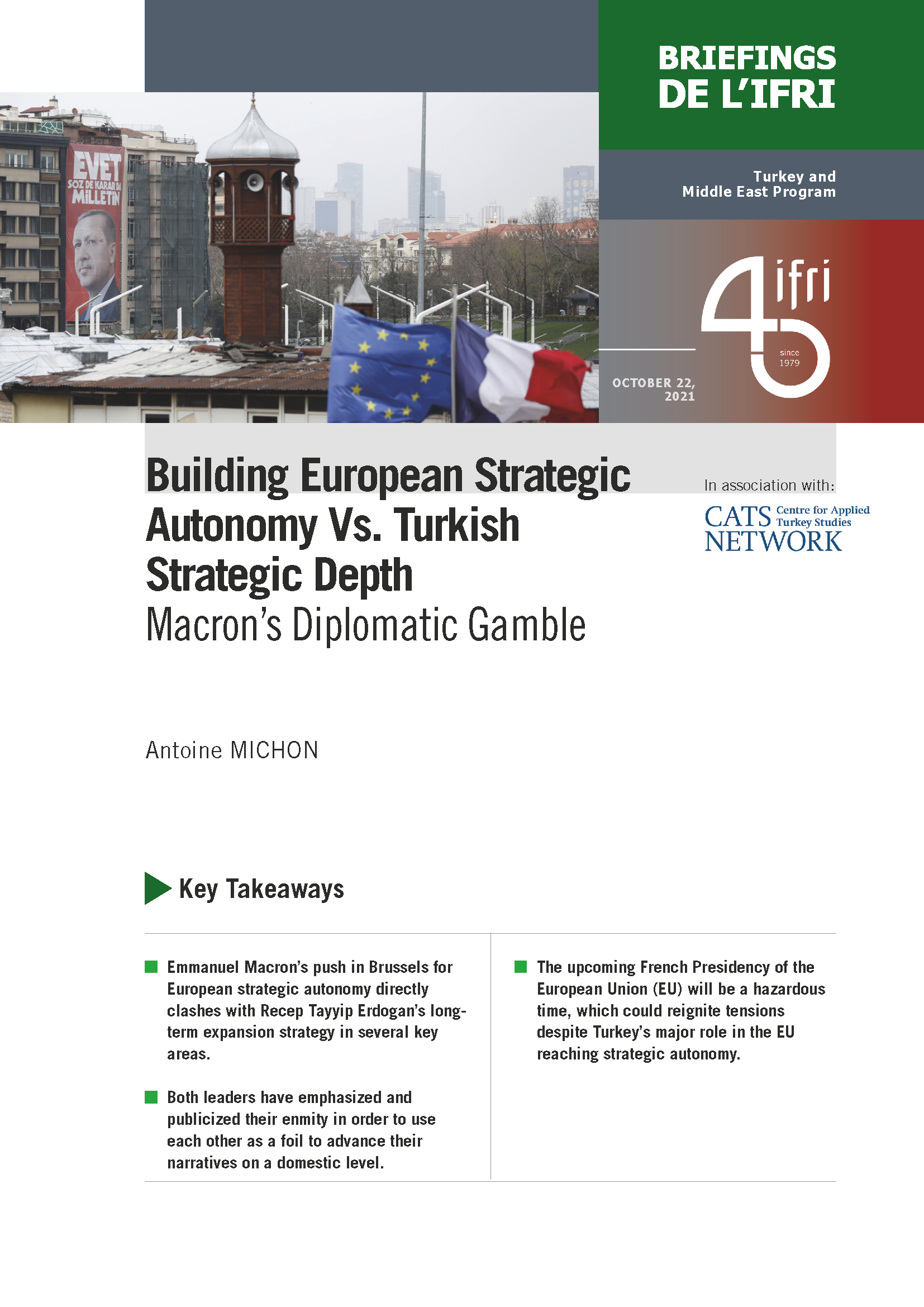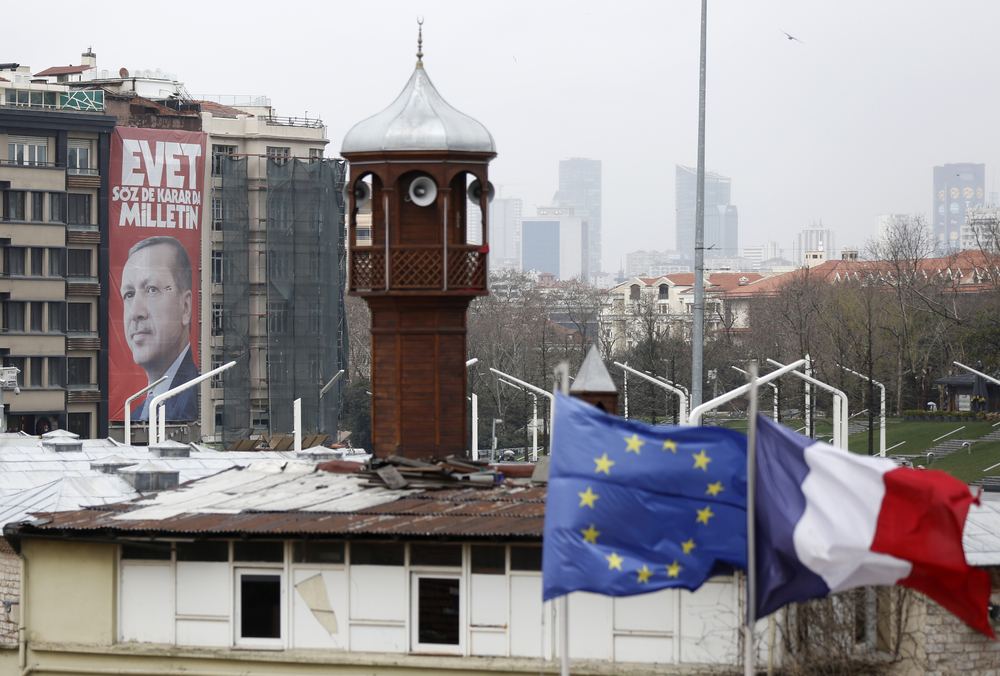Building European Strategic Autonomy vs. Turkish Strategic Depth: Macron's Diplomatic Gamble

Since coming into office in 2017, Emmanuel Macron has been the loudest advocate for the development of European ‘strategic autonomy’, which aims at reinforcing the European Union’s geo-strategic independence. Asserting the EU’s role on the international stage, starting with its immediate neighborhood, directly clashes with Recep Tayyip Erdogan's long-term expansion strategy in several key areas.

The French president has been publicly using the repeated clashes in the Mediterranean, on border management, religious affairs, and the Rule of Law to convince his European counterparts of the need to protect European sovereignty by deepening the Union’s level of integration. Meanwhile, the failure of the European component of the ‘Strategic depth’ President Erdogan has been building since 2003, combined with growing political opposition due to the domestic economic situation has led him to adopt a more confrontational stance to support his domestic narrative. As such, despite the undeniable long-term benefits Brussels and Ankara could gain from deepening their strategic partnership, the personal enmity between leaders and their diverging short-term political interests have prevented any structural progress on key issues. The French Presidency of the European Union, which starts in January 2022 and will see President Macron run for his reelection, will be a hazardous time and could easily reignite tensions.

Available in:
Regions and themes
ISBN / ISSN
Share
Download the full analysis
This page contains only a summary of our work. If you would like to have access to all the information from our research on the subject, you can download the full version in PDF format.
Building European Strategic Autonomy vs. Turkish Strategic Depth: Macron's Diplomatic Gamble
Related centers and programs
Discover our other research centers and programsFind out more
Discover all our analyses
RAMSES 2024. A World to Be Remade
For its 42nd edition, RAMSES 2024 identifies three major challenges for 2024.
France and the Philippines should anchor their maritime partnership
With shared interests in promoting international law and sustainable development, France and the Philippines should strengthen their maritime cooperation in the Indo-Pacific. Through bilateral agreements, expanded joint exercises and the exchange of best practices, both nations can enhance maritime domain awareness, counter security threats and develop blue economy initiatives. This deeper collaboration would reinforce stability and environmental stewardship across the region.

The China-led AIIB, a geopolitical tool?
The establishment of the Asian Infrastructure Investment Bank (AIIB) in 2016, on a Chinese initiative, constituted an attempt to bridge the gap in infrastructure financing in Asia. However, it was also perceived in the West as a potential vehicle for China’s geostrategic agendas, fueling the suspicion that the institution might compete rather than align with existing multilateral development banks (MDBs) and impose its own standards.
Jammu and Kashmir in the Aftermath of August 2019
The abrogation of Article 370, which granted special status to the state of Jammu and Kashmir (J&K), has been on the agenda of the Bharatiya Janata Party (BJP) for many decades.





